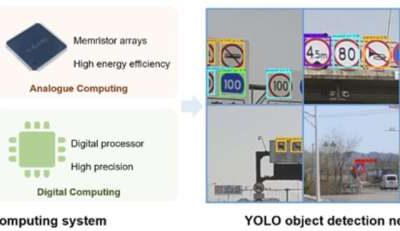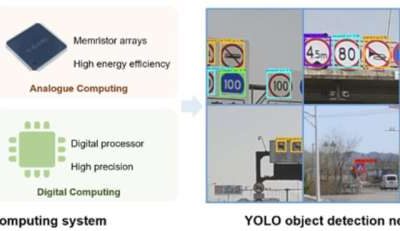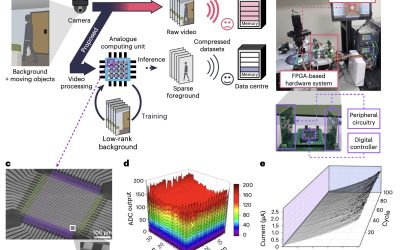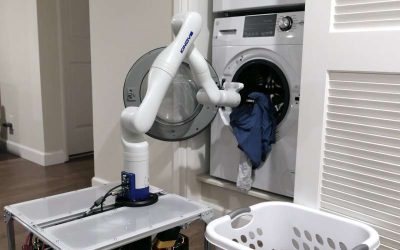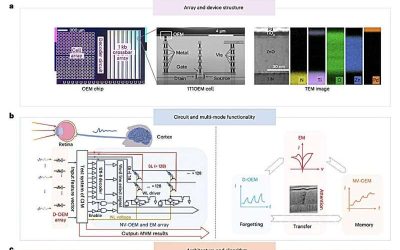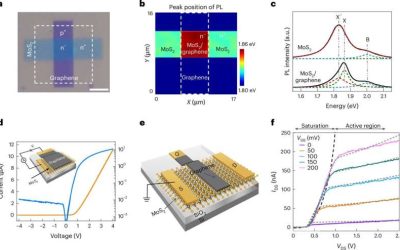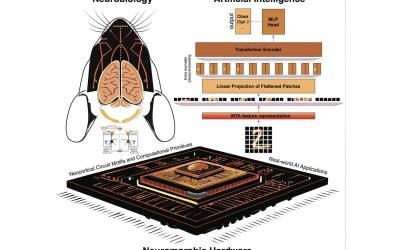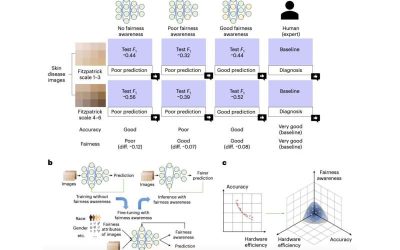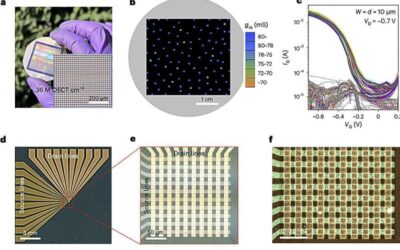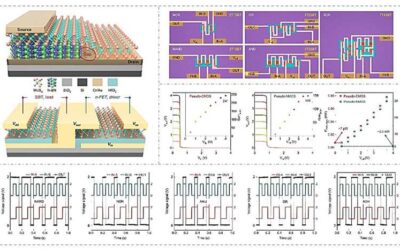Many conventional computer architectures are ill-equipped to meet the computational demands of machine learning-based models. In recent years, some engineers have thus been trying to design alternative architectures that could be better suited for running these models.
Hardware
Dual-domain architecture shows almost 40 times higher energy efficiency for running neural networks
Many conventional computer architectures are ill-equipped to meet the computational demands of machine learning-based models. In recent years, some engineers have thus been trying to design alternative architectures that could be better suited for running these models.
Analog computing platform based on one-memristor array efficiently processes real-time videos
As artificial intelligence models become increasingly advanced, electronics engineers have been trying to develop new hardware that is better suited for running these models, while also limiting power-consumption and boosting the speed at which they process data. Some...
Open-source holonomic mobile manipulator could advance household robotics
Researchers at Stanford University, Princeton University, and Dexterity recently developed TidyBot++, a holonomic mobile robot that can perform various household chores and could help to train or test new algorithms for robotics applications.
Optoelectronic device mimics human vision for diversified in-sensor computing
To make sense of the world, most humans rely in great part on their vision. Recent research suggests that the human visual system is hierarchical, meaning that it processes information on different levels, ranging from the low-level processing of sensory stimuli to...
Innovative transistor for reconfigurable fuzzy logic hardware shows promise for enhanced edge computing
Edge computing devices, devices located in proximity to the source of data instead of in large data centers, could perform computations locally. This could reduce latency, particularly in real-time applications, as it would minimize the need to transfer data from the...
AI mimics neocortex computations with ‘winner-take-all’ approach
Over the past decade or so, computer scientists have developed increasingly advanced computational techniques that can tackle real-world tasks with human-comparable accuracy. While many of these artificial intelligence (AI) models have achieved remarkable results,...
How hardware contributes to the fairness of artificial neural networks
Over the past couple of decades, computer scientists have developed a wide range of deep neural networks (DNNs) designed to tackle various real-world tasks. While some of these models have proved to be highly effective, some studies found that they can be unfair,...
A new strategy for fabricating high-density vertical organic electrochemical transistor arrays
Organic electrochemical transistors (OECTs) are an emerging class of transistors based on organic superconducting materials known for their ability to modulate electrical current in response to small changes in the voltage applied to their gate electrode. Like other...
An architecture for sub-picowatt logic computing based on self-biased molybdenum disulfide transistors
The continuous improvement of circuits and electronic components is vital for the development of new technologies with enhanced capabilities and unique characteristics. In recent years, most electronics engineers have been specifically focusing on reducing the size of...

